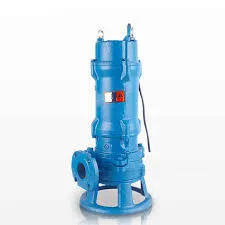English
- Afrikaans
- Albanian
- Amharic
- Arabic
- Armenian
- Azerbaijani
- Basque
- Belarusian
- Bengali
- Bosnian
- Bulgarian
- Catalan
- Cebuano
- Corsican
- Croatian
- Czech
- Danish
- Dutch
- English
- Esperanto
- Estonian
- Finnish
- French
- Frisian
- Galician
- Georgian
- German
- Greek
- Gujarati
- Haitian Creole
- hausa
- hawaiian
- Hebrew
- Hindi
- Miao
- Hungarian
- Icelandic
- igbo
- Indonesian
- irish
- Italian
- Japanese
- Javanese
- Kannada
- kazakh
- Khmer
- Rwandese
- Korean
- Kurdish
- Kyrgyz
- Lao
- Latin
- Latvian
- Lithuanian
- Luxembourgish
- Macedonian
- Malgashi
- Malay
- Malayalam
- Maltese
- Maori
- Marathi
- Mongolian
- Myanmar
- Nepali
- Norwegian
- Norwegian
- Occitan
- Pashto
- Persian
- Polish
- Portuguese
- Punjabi
- Romanian
- Russian
- Samoan
- Scottish Gaelic
- Serbian
- Sesotho
- Shona
- Sindhi
- Sinhala
- Slovak
- Slovenian
- Somali
- Spanish
- Sundanese
- Swahili
- Swedish
- Tagalog
- Tajik
- Tamil
- Tatar
- Telugu
- Thai
- Turkish
- Turkmen
- Ukrainian
- Urdu
- Uighur
- Uzbek
- Vietnamese
- Welsh
- Bantu
- Yiddish
- Yoruba
- Zulu
Telephone: +86 13120555503
Email: frank@cypump.com
Oct . 17, 2024 13:11 Back to list
Efficient Solutions for Tractor-Duty Slurry Pumping in Agriculture and Industrial Applications
The Importance of Tractor Slurry Pumps in Modern Agriculture
In the realm of modern agriculture, the efficiency and effectiveness of liquid waste management play a crucial role in ensuring sustainable farming practices. One significant tool that has emerged in this domain is the tractor slurry pump. These pumps are designed specifically to handle and transport slurry, a mixture of organic matter, water, and nutrients, which is essential for fertilizing crops and managing waste.
What is a Tractor Slurry Pump?
A tractor slurry pump is a specialized piece of equipment that attaches to a tractor, utilizing its power to pump slurry from one location to another. These pumps are vital for farmers who need to manage manure from livestock operations effectively. The slurry pump facilitates the transfer of slurry from the storage pit to the fields, ensuring that nutrients are efficiently returned to the soil for crop growth.
Key Features of Tractor Slurry Pumps
Tractor slurry pumps come with several features that enhance their functionality. Firstly, they are designed to handle high-density materials, which is crucial given the viscous nature of slurry. These pumps often include heavy-duty components such as robust impellers and housings made from resistant materials to assure longevity and durability.
Moreover, most tractor slurry pumps are equipped with adjustable speed settings, allowing farmers to control the flow rate to suit the application requirements
. This capability is particularly beneficial when spreading slurry across diverse terrains or varying crop types. Some models even come with a hydraulic drive, making them more efficient and easier to operate.tractor slurry pump

Benefits of Using Tractor Slurry Pumps
1. Enhanced Nutrient Management One of the primary benefits of utilizing a tractor slurry pump is its ability to manage nutrients effectively. By efficiently applying slurry to fields, farmers can enhance soil fertility, contributing to healthier crops and improved yield. This method also helps in minimizing nutrient runoff, which is crucial for environmental conservation.
2. Labor Efficiency Traditionally, manual handling of slurry was labor-intensive and time-consuming. Tractor slurry pumps significantly reduce the amount of labor required for slurry application. The automated processes allow farmers to focus on other essential tasks, increasing overall productivity on the farm.
3. Cost-Effectiveness Investing in a tractor slurry pump can lead to long-term cost savings. By facilitating the use of organic waste as fertilizer, farmers can reduce their dependence on synthetic fertilizers, which are often expensive. Additionally, the efficiency of these pumps allows for more effective application, reducing waste and maximizing the return on investment.
4. Versatility and Mobility Tractor slurry pumps are highly versatile, capable of working in various farming conditions. They can be used for multiple applications, including transferring and spreading manure, digestate from biogas plants, or liquid fertilizers. The mobility of being tractor-mounted means that they can be easily moved from one site to another, adapting to different farming operations seamlessly.
Conclusion
In conclusion, the tractor slurry pump is an indispensable tool in contemporary agriculture, offering numerous benefits that contribute to efficient and sustainable farming practices. By ensuring effective management of slurry, these pumps not only enhance soil fertility but also promote environmental responsibility. As agricultural practices evolve and the focus on sustainability intensifies, tractor slurry pumps will continue to play a critical role in shaping the future of farming. For farmers looking to optimize their operations, investing in high-quality slurry pumping equipment could be one of the best decisions they make, ensuring both productivity and environmental stewardship. The incorporation of technology and innovative tools like tractor slurry pumps is an essential step toward a more sustainable agricultural future, where efficiency and eco-friendliness go hand in hand.
-
Heavy-Duty Mining Sludge Pumps - Wear-Resistant Slurry Handling
NewsAug.02,2025
-
Horizontal Split Case Pump with GPT-4 Turbo | High Efficiency
NewsAug.01,2025
-
ISG Series Pipeline Pump - Chi Yuan Pumps | High Efficiency, Durable Design
NewsAug.01,2025
-
Advanced Flue Gas Desulfurization Pump with GPT-4 Turbo | Durable & Efficient
NewsJul.31,2025
-
ISG Series Vertical Pipeline Pump - Chi Yuan Pumps | Advanced Hydraulic Design&Durable Construction
NewsJul.31,2025
-
ISG Series Vertical Pipeline Pump - Chi Yuan Pumps | Energy Efficient & Low Noise
NewsJul.31,2025










